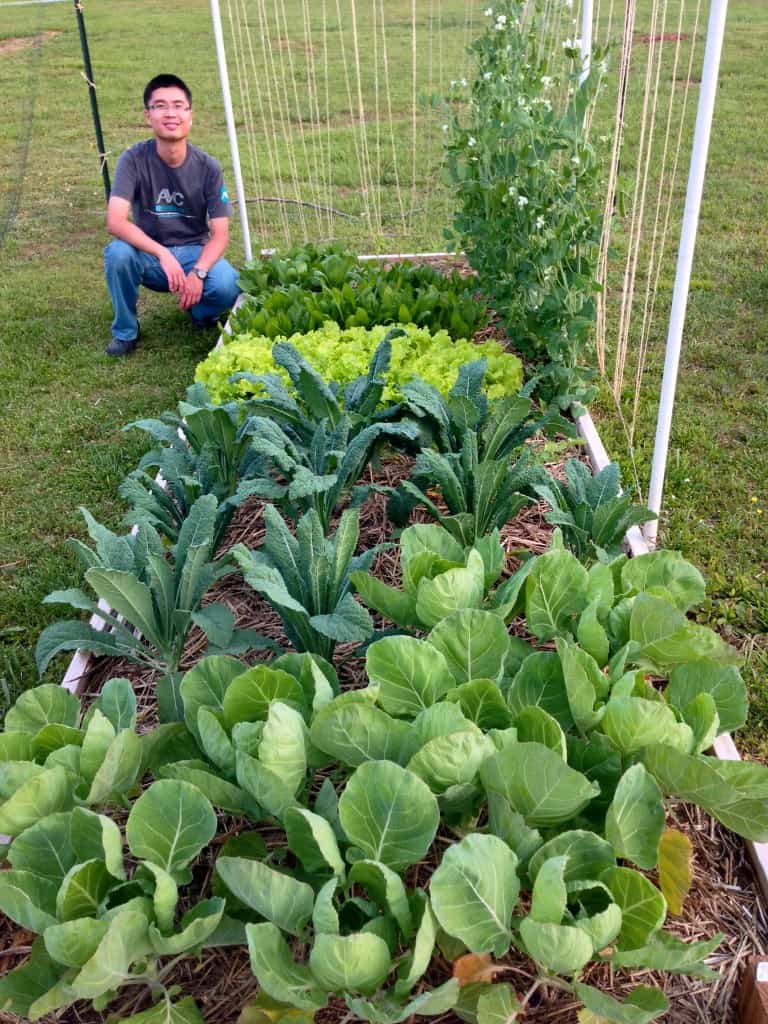Food expenses are one of the most important areas of your budget to keep in check, and you may have read in our earlier post, How We Eat for Less Than $60 a Month: A Peek into Our Food Budget, that in 2013 we averaged $57/month on food. Wondering how we did it? We were a bit surprised at the numbers too, as we never felt that we were ever in dire straits, had empty cupboards, or lost weight (in fact, Al and I both gained weight last year). These simple principles that we will share with you have become so natural to us, it took a bit of thinking to realize that they were to thank for our monthly savings.
But first, here are a few unique characteristics about our household to keep in mind, as we realize that they have been incredibly helpful in keeping our expenses down but may not be your situation.
Unique Characteristics
- Vegetarian – There are a lot of benefits we could discuss about being vegetarian. But we’ll save that for another post. For now, let’s just face it, beans and tofu are a lot cheaper than ground beef and fish fillet.
- 2-Meal-A-Day plan – This is not for everyone, but works best for us due to our work schedules, our efforts to allow at least 4 hours between meals, and wanting to eat at least one meal together. So, on days that we work, Al and I eat a late breakfast/early lunch at work and then eat supper together at home. The fact is, in our sedentary professions, 2 meals provide plenty of energy to get us through our days.
- Not socialites – We have friends whose homes are the hub of social gatherings. We love their hospitality and generosity entertaining, housing, and feeding so many people, but we’re not the type to have crowds of people over every weekend.
- CA imports – Visiting family in CA usually means we come home with a suitcase full of Asian veggie meats and other Asian commodities that are rare or expensive in TN. These are rare items that don’t make up the bulk of our diet, but are special treats that we ration very carefully.
- Childless – Yup, for now it’s just the two of us. If this changes, we’ll let you know. (UPDATE! This has changed! We are now proud parents to Little Miss Crumb Saver!)
So, as you can see, if you have 2 teenage boys who eat you out of house and home, don’t expect to live on $57/month. You may soon have 2 ravenous bears! However, it doesn’t mean you can’t apply some money saving principles. Here are just a few we’ve followed that have been part of the reason for our food budget savings, and we hope they will be helpful to you too.
We Believe in:
- Rarely eating out – We used to eat out a few times per year – our anniversary, birthdays, big achievements (i.e. Al’s graduation from graduate school). But what’s better than eating out only for special occasions? Eating out for free! Ever since we discovered How to Get Free Food on Your Birthday, often when we eat out now, it’s “on the house”.
- No snacking – This is something I was taught since I was young and has become a habit that Al and I uphold from both a health and financial viewpoint. It doesn’t matter if it’s carrot sticks and trail mix instead of soda and chips, we try to keep strict about only consuming water between meals. Try it and you’ll be surprised how much better you feel and how much money you’ll save!
- Minimal waste – Not wasting food is a principle that has been engrained in many of us by our parents. And our parents were right, not only does it show disregard for the privileged resources we have that many others desperately need, but wasted food is also wasted money. Think of it, you paid hard-earned cash for your groceries and now you’re scraping it into the trash. It’s like wadding up your bills and grinding them down the garbage disposal. At our house, food on the plate has no choice but to go into your stomach. But don’t forget about the food stored in your fridge, freezer, or pantry. Don’t buy more than you can use unless you know it will be eaten before it spoils, has a long shelf-life, can be preserved, or is purchased to be given away. As a general rule, we try to limit our perishable produce to no more than we can eat within 2 weeks.
- Gardening – Check out our post on gardening to save the crumbs for more info, but we try to grow vegetables and fruits that are expensive to buy or difficult to find. If all your neighbors and everyone at church are growing zucchini and are trying to pawn it off at your doorstep because they have it coming out their ears, grow something else! We opted to plant some Chinese vegetables because they’re hard to find here in TN and things like basil which are expensive in the supermarket (and the pesto is easy to freeze – here’s our recipe).
- Being content – Perhaps one of the best lessons in saving money is one we can learn from Paul’s counsel to young Timothy:
“There is great gain in godliness with contentment; for we brought nothing into the world, and we cannot take anything out of the world; but if we have food and clothing, with these we shall be content.” 1 Tim 6:6-8
Can you identify with any of these principles/philosophies? What do they mean to you or what are some of your own? We’d love to learn from you.
Read the rest of the series and find out how we determine how to shop and menu plan:
How We Eat for Less Than $60 a Month: A Peek into Our Food Budget
How We Eat for Less Than $60 a Month: Part 2 – What We Buy
How We Eat for Less Than $60 a Month: Part 3 – How We Cook
How to Plan a Menu On a Budget









